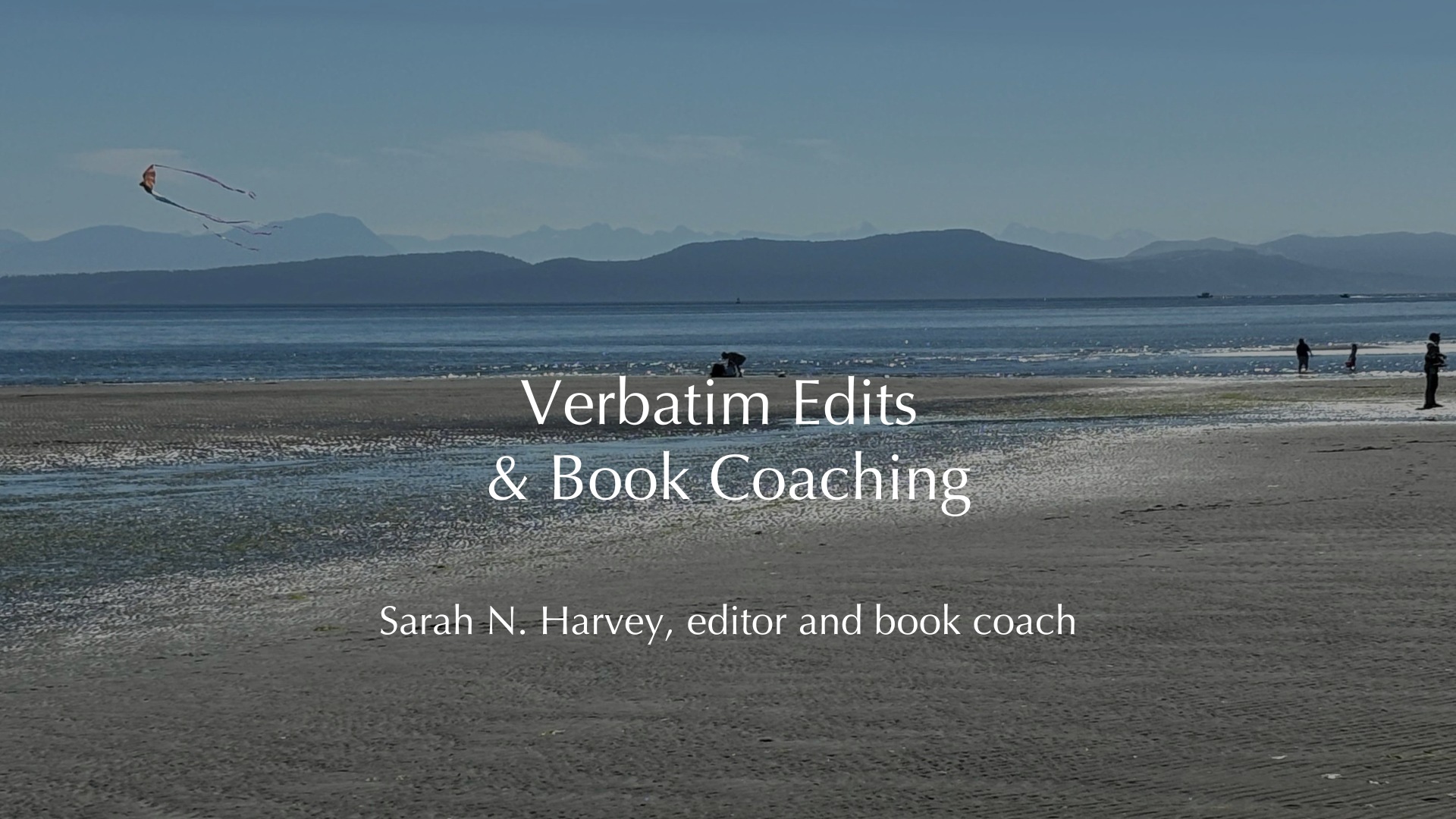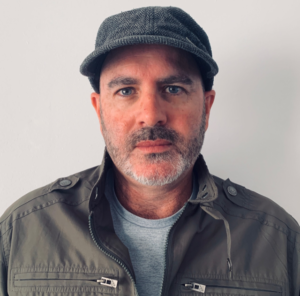
When Orca bought the Canadian rights to publish Darren’s Groth’s YA novel, Are You Seeing Me? it had already been published in Australia, where Darren was kind of a big deal. I was asked, as the YA editor, to “edit” the book for the North American market. I say “edit” but what I really mean is “look for Australian words and phrases and translate them into North American English.” As I combed the pages for mystifying Australian-isms– dunny, yonks, sticky beak, Moreton Bay bugs–I realized two things: one, this guy could write–with humour, passion and compassion–and two, I wanted to be his editor on whatever book came next.
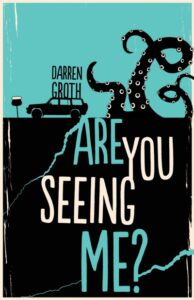
A couple of years (and quite a bit of nudging) later, Darren submitted a new manuscript called Munro vs. the Coyote (published as Exchange of Heart in Oz).
Darren says, “I remember when we got together for the first Munro vs the Coyote editorial meeting , my opening question was “Okay, tell me what’s wrong with this.” You weren’t about that — it was important to you that our partnership not be framed that way. You told me what was good about the story, what worked; only after that did we start digging into the structure to find the beating heart of Munro.”
Darren came to Victoria for that first editorial meeting and to meet the rest of the Orca pod. We went for lunch, I think. A very long lunch. No alcohol was involved, but we laughed like drains.
Sidebar: the expression “laugh like a drain” has always made me, well, laugh like a drain. Eric Partridge’s A Dictionary of Forces’ Slang 1939–45, describes it as ‘Ward-room and also Army officers’ slang.’ Apparently the French verb rigoler, to laugh, comes from the noun rigole, which is a drainage channel, gutter or ditch. So, it’s a laugh that burbles and gurgles, but can also be somewhat vulgar. Sounds about right.
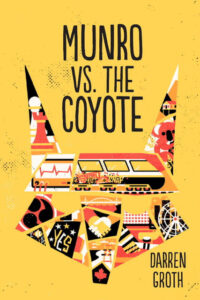
At that first meeting, Darren wore a flat cap that I came to know as one of his “signature” hats (see author photo), but a less pretentious person you are unlikely to meet. He is not a hipster. He just loves hats. And his family. And writing. And beer. But not at editorial meetings. Darren is serious about his writing–intense, even–but also completely open to editorial comments and suggestions. It was very clear to me that if I was honest with him, he would be honest with me. He might disagree with me (and I with him) but he was always willing to listen. And laugh.
Our conversation around Munro vs the Coyote continued over about a year, with one memorable meeting in the delightful coastal town of Steveston, near where Darren lives. I can’t remember why I decided to make the trip over on the ferry to see him. We may have been at an impasse over something in the manuscript, and I thought that a long face to face meeting would bring some clarity to the issues.
Darren has an intellectually disabled, neurodiverse son; intellectual disability and neurodiversity often feature prominently in his novels. There were times during the editing of Munro vs. the Coyote when I questioned some of the writing about these issues. To his credit, he never brushed me off in a “you don’t know what you’re talking about” way. He understood that his personal experience and what he put on the page were two different things, even though they were intimately linked.
Munro vs. the Coyote was published in 2017, and we were soon at work on Infinite Blue, a book he had co-written with his brother, Simon. Now, one Groth brother is a lot! Would two be too much? Infinite Blue was a book unlike Are You Seeing Me? and Munro vs. the Coyote. It was romantic, mystical and immersive (read it and you’ll see why I use that word). And no, two brothers Groth were not too much.
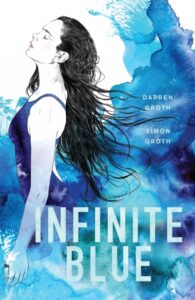
This is Darren’s take on that edit:
“Working together on the Infinite Blue was particularly rewarding. The edit was somewhat of a challenge given my collaborator was younger brother Simon, living on the other side of the Pacific in sunny Brisbane. Undaunted by the prospect of wrangling time zones, dodgy wi-fi and a pair of bickering Antipodean siblings, Sarah navigated the proceedings with all the aplomb, patience and deft hand of the chief chimpanzee trainer at the zoo. Her marvelous guidance was most keenly observed in the re-shaping of the story’s ending. Simon and I had been fixated on a Romeo and Juliet-styled climax; Sarah gently countered on a number of occasions that a): Romeo and Juliet had kinda been done by some other author previously, and b): the contemporary reader might not be as receptive to all-consuming tragedy as we imagined.
“In the eleventh hour, mere days before the edited manuscript was due to go into production, her message finally got through. On a drive home from my day job, I decided to abandon all the pre-conceived baggage I’d been carrying since the first draft and re-imagine Infinite Blue’s denouement. The result? A new ending. The right ending. Maybe my favourite ending to any work I’ve done. And it wouldn’t have happened without Sarah — that savvy, sanguine, sticky-beak (look it up) of a literary chaperone — drawing the very best out of me.”
Very recently, Darren asked me if I’d have a look at a picture book he was writing, his first ever. What started as a one-off email, became a rapid-fire six-draft edit of a book called Playing Catch With Pinecones. I hope his agents find a home for this book soon. I think will engage, enchant, and enlighten young readers.
Darren’s latest book is Boy in the Blue Hammock, published by Nightwood Editions, an epic tale of loss and loyalty, of dissent and destruction, of assumption and ableism.
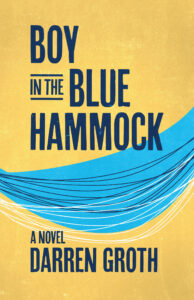
Darren is an Adelaide Festival Award for Literature winner and has been nominated for many other awards in Canada and Australia. You can get a sense of his writing (and personal) style and generous spirit at darrengroth.com.
